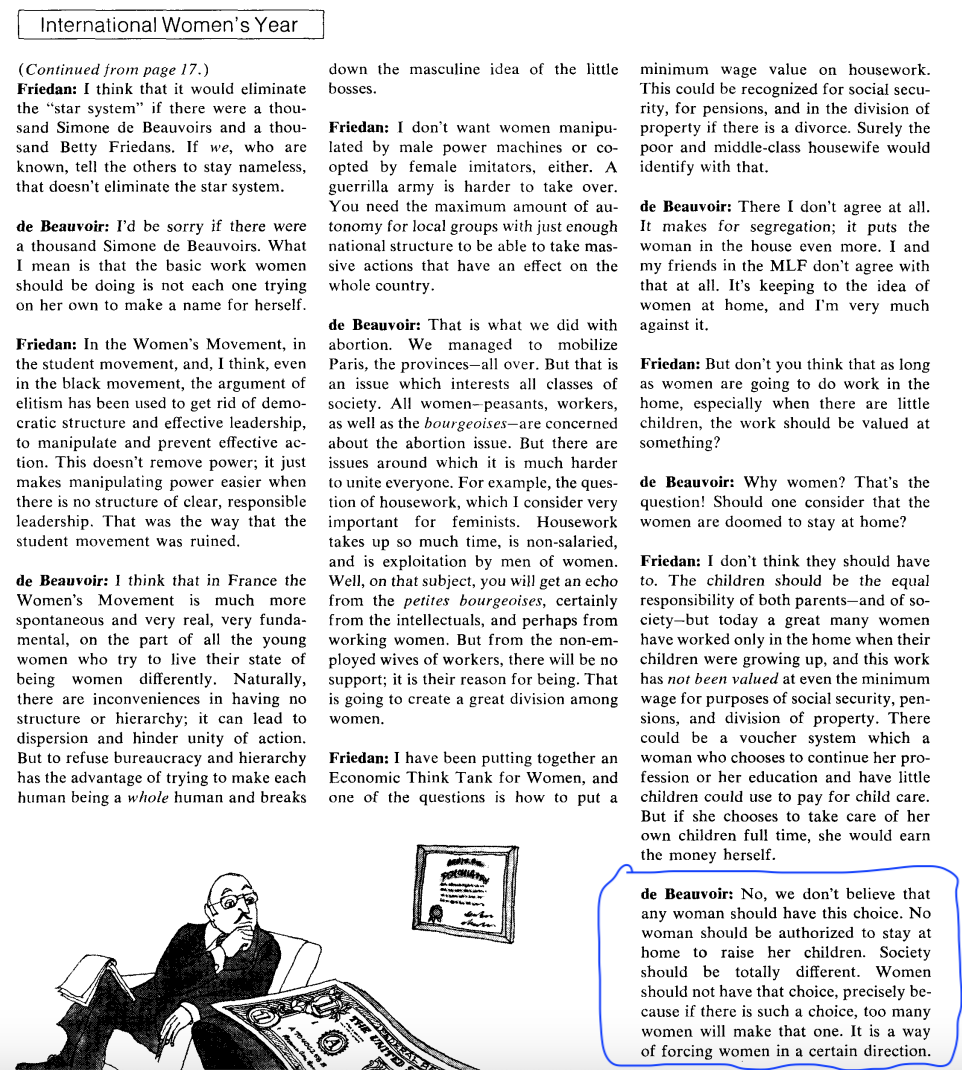Simone Lucie Ernestine Marie Bertrand de Beauvoir

Simone Lucie Ernestine Marie Bertrand de Beauvoir (9 January 1908 – 14 April 1986) was a French existentialist philosopher, writer, social theorist, and feminist activist. Though she did not consider herself a philosopher, nor was she considered one at the time of her death, she had a significant influence on both feminist existentialism and feminist theory.
Beauvoir wrote novels, essays, biographies, autobiographies, and monographs on philosophy, politics, and social issues. She was best known for her "trailblazing work in feminist philosophy", The Second Sex (1949), a detailed analysis of women's oppression and a foundational tract of contemporary feminism. She was also known for her novels, the most famous of which were She Came to Stay (1943) and The Mandarins (1954). Her most enduring contribution to literature is her memoirs, notably the first volume, Mémoires d'une jeune fille rangée (1958), which has warmth and descriptive power. She was also a highly awarded woman, some of the most notable prizes being the 1954 Prix Goncourt, the 1975 Jerusalem Prize, and the 1978 Austrian State Prize for European Literature. Her life was not without controversy: she briefly lost her teaching job after being accused of sexually abusing some of her students.
She and her long-time lover, Jean-Paul Sartre, along with numerous other French intellectuals, campaigned for the release of people convicted of child sex offenses and signed a petition which advocated the abolition of age of consent laws in France.[1][2]
Quotes

"One is not born, but rather becomes, a woman. No biological, psychological or economic fate determines the figure that the human female presents in society; it is civilisation as a whole that determines this creature." [3]
"One is not born, but rather becomes, a woman. No biological, psychological, or economic fate determines the figure that the human female presents in society; it is civilization as a whole that produces this creature, intermediate between male and eunuch, which is described as feminine." [4]
"No, we don't believe that any woman should have this choice. No woman should be authorized to stay at home and raise her children. Society should be totally different. Women should not have that choice, precisely because if there is such a choice, too many women will make that one." [5][6][7][8]
Wikipedia
This article contains information imported from the English Wikipedia. In most cases the page history will have details. If you need information on the importation and have difficulty obtaining it please contact the site administrators.
Wikipedia shows a strong woke bias. Text copied over from Wikipedia can be corrected and improved.
References
- ↑ https://www.theguardian.com/world/2001/feb/24/jonhenley
- ↑ https://archive.is/cfn9N
- ↑ https://www.theguardian.com/books/1999/jun/06/classics.simonedebeauvoir
- ↑ https://www.azquotes.com/quote/1401099
- ↑ https://www.azquotes.com/quote/655967
- ↑ https://archive.is/wip/OqFWG
- ↑ https://www.metabunk.org/threads/claim-simone-de-beauvoir-said-that-women-should-not-have-the-choice-to-stay-at-home.12193/
- ↑ https://archive.is/wip/Q7r6M